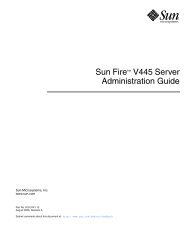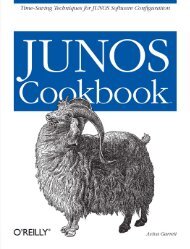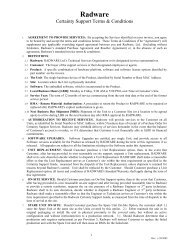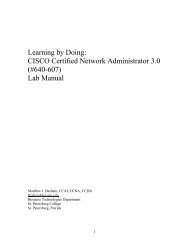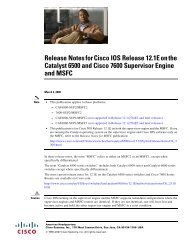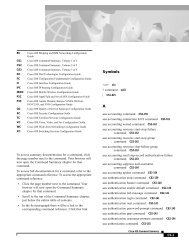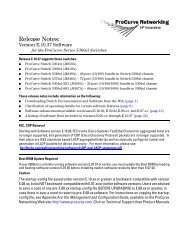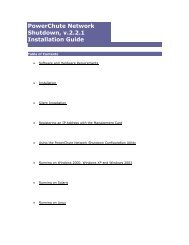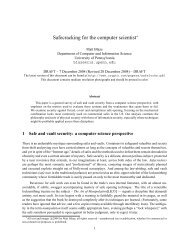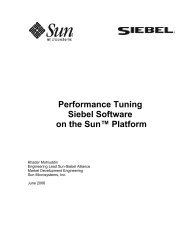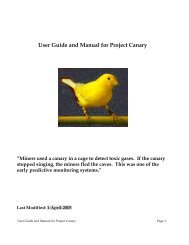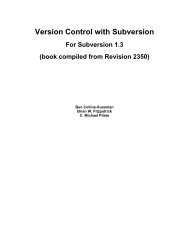Postfix Overview - Introduction - SCN Research
Postfix Overview - Introduction - SCN Research
Postfix Overview - Introduction - SCN Research
You also want an ePaper? Increase the reach of your titles
YUMPU automatically turns print PDFs into web optimized ePapers that Google loves.
LOCAL(8)<br />
LOCAL(8)<br />
Page 1 of 7<br />
NAME<br />
local - <strong>Postfix</strong> local mail delivery<br />
SYNOPSIS<br />
local [generic <strong>Postfix</strong> daemon options]<br />
DESCRIPTION<br />
The local daemon processes delivery requests from the<br />
<strong>Postfix</strong> queue manager to deliver mail to local recipients.<br />
Each delivery request specifies a queue file, a sender<br />
address, a domain or host to deliver to, and one or more<br />
recipients. This program expects to be run from the master(8)<br />
process manager.<br />
The local daemon updates queue files and marks recipients<br />
as finished, or it informs the queue manager that delivery<br />
should be tried again at a later time. Delivery problem<br />
reports are sent to the bounce(8) or defer(8) daemon as<br />
appropriate.<br />
SYSTEM-WIDE AND USER-LEVEL ALIASING<br />
The system adminstrator can set up one or more system-wide<br />
sendmail-style alias databases. Users can have sendmailstyle<br />
~/.forward files. Mail for name is delivered to the<br />
alias name, to destinations in ~name/.forward, to the<br />
mailbox owned by the user name, or it is sent back as<br />
undeliverable.<br />
The system administrator can specify a comma/space separated<br />
list of ~/.forward like files through the forward_path<br />
configuration parameter. Upon delivery, the<br />
local delivery agent tries each pathname in the list until<br />
a file is found. The forward_path parameter is subject to<br />
interpolation of $user (recipient username), $home (recipient<br />
home directory), $shell (recipient shell), $recipient<br />
(complete recipient address), $extension (recipient<br />
address extension), $domain (recipient domain), local<br />
(entire recipient address localpart) and $recipient_delimiter.<br />
The forms ${name?value} and ${name:value} expand<br />
conditionally to value when $name is (is not) defined.<br />
Characters that may have special meaning to the shell or<br />
file system are replaced by underscores. The list of<br />
acceptable characters is specified with the forward_expansion_filter<br />
configuration parameter.<br />
An alias or ~/.forward file may list any combination of<br />
external commands, destination file names, :include:<br />
directives, or mail addresses. See aliases(5) for a precise<br />
description. Each line in a user's .forward file has<br />
the same syntax as the right-hand part of an alias.<br />
When an address is found in its own alias expansion,<br />
delivery is made to the user instead. When a user is<br />
listed in the user's own ~/.forward file, delivery is made<br />
to the user's mailbox instead. An empty ~/.forward file<br />
means do not forward mail.<br />
In order to prevent the mail system from using up unreasonable<br />
amounts of memory, input records read from<br />
:include: or from ~/.forward files are broken up into<br />
chunks of length line_length_limit.<br />
http://www.porcupine.org/postfix-mirror/local.8.html<br />
6/26/01




